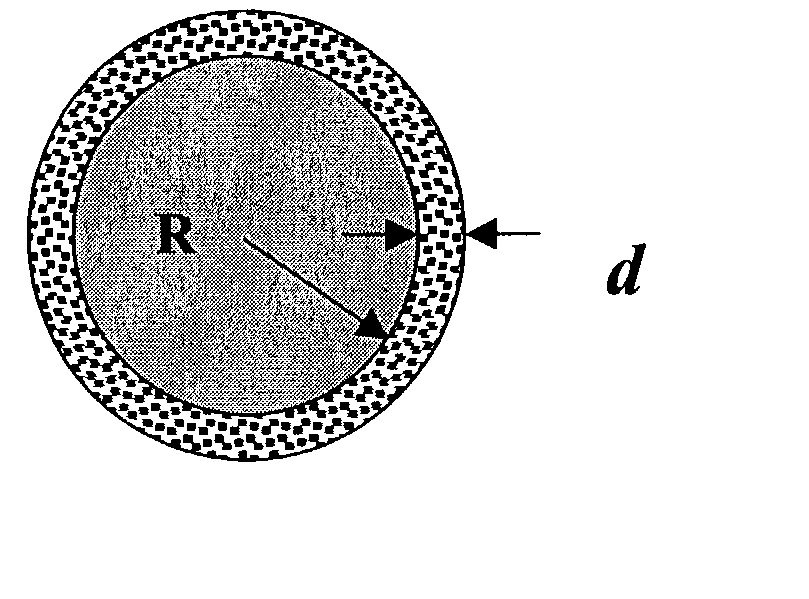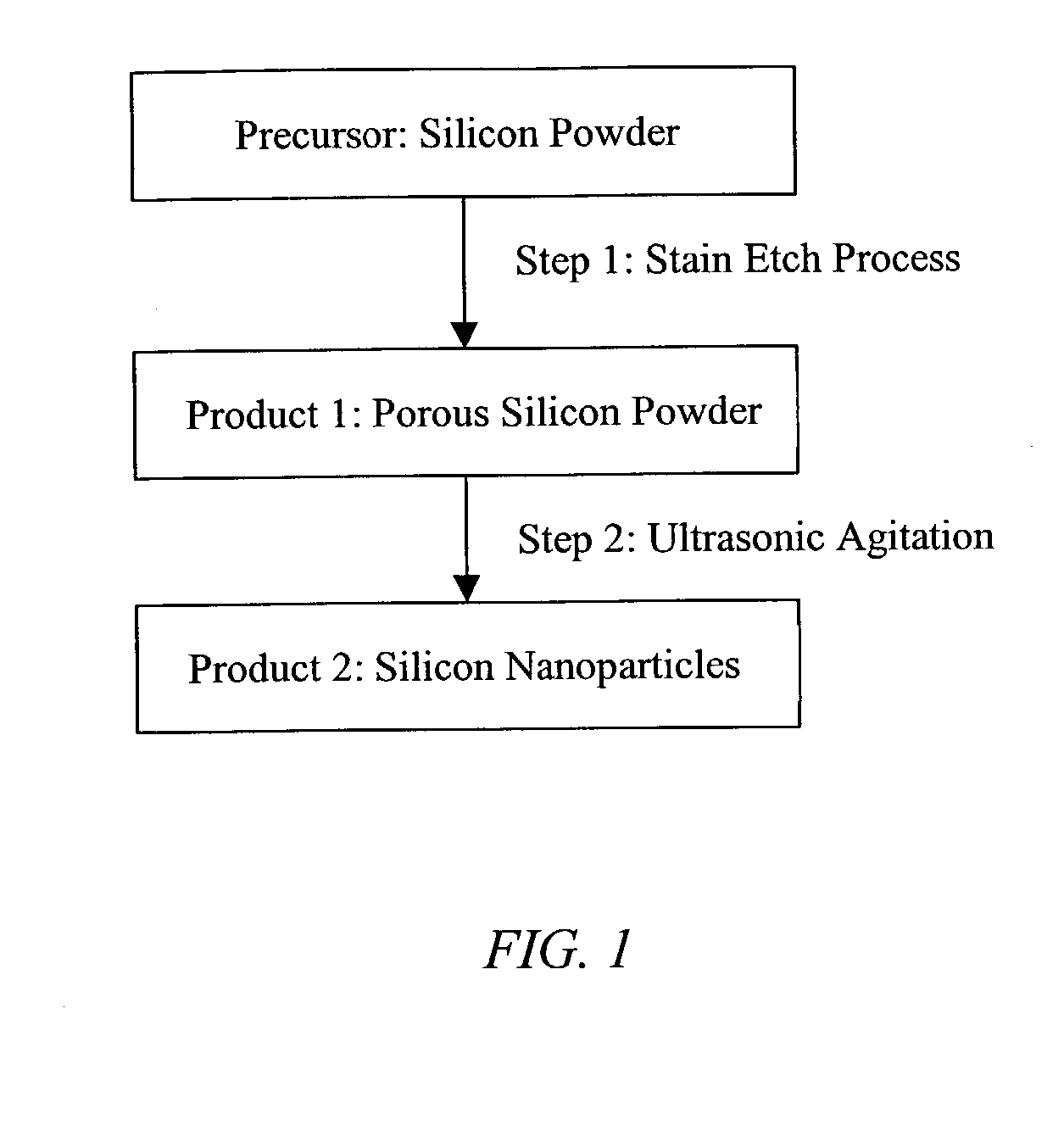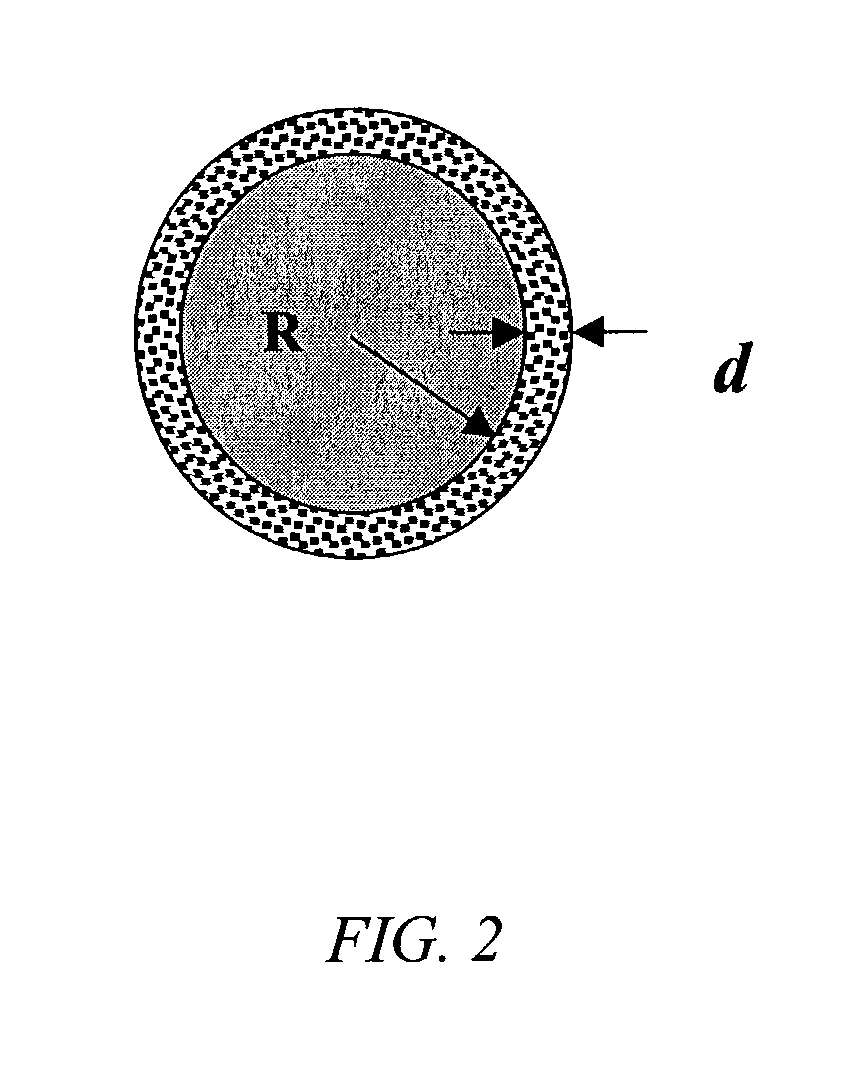Method of producing silicon nanoparticles from stain-etched silicon powder
a technology of stain-etched silicon and silicon nanoparticles, which is applied in the direction of silicon compounds, silicon layered products, cellulosic plastic layered products, etc., can solve the problems of high maintenance cost of expensive equipment, inability to produce porous silicon powder, and inability to meet the requirements of high-quality production and us
- Summary
- Abstract
- Description
- Claims
- Application Information
AI Technical Summary
Problems solved by technology
Method used
Image
Examples
Embodiment Construction
[0044] Bulk p-type silicon with a resistivity of 1-10 Ohm.multidot.cm was ground, ball milled, and sieved to produce a silicon powder comprising silicon particles with an average diameter of 100 micrometers. Approximately 0.1 grams of this silicon powder was placed in a flask with approximately 2 mL of an aqueous solution comprising 1 mL of 49 percent hydrofluoric acid and 1 mL of a 0.2 M solution of Fe(NO.sub.3).sub.3 in water. Reaction conditions comprised room temperature, in air, 30 minute duration, stirring periodically every 3-5 minutes. Evolution of NO.sub.2 was observed. The resulting porous silicon particles were then filtered, washed with water, and characterized with ultraviolet (UV) photoluminescence (PL) spectroscopy. Characterization revealed strong red-orange PL of the powder particles, indicating a porous layer on their surface.
[0045] To produce silicon nanoparticles, 0.5 grams of the porous silicon powder was redispersed in 5 mL of ethanol. This suspension was then ...
PUM
| Property | Measurement | Unit |
|---|---|---|
| particle diameter | aaaaa | aaaaa |
| particle diameter | aaaaa | aaaaa |
| thickness | aaaaa | aaaaa |
Abstract
Description
Claims
Application Information
 Login to View More
Login to View More - R&D
- Intellectual Property
- Life Sciences
- Materials
- Tech Scout
- Unparalleled Data Quality
- Higher Quality Content
- 60% Fewer Hallucinations
Browse by: Latest US Patents, China's latest patents, Technical Efficacy Thesaurus, Application Domain, Technology Topic, Popular Technical Reports.
© 2025 PatSnap. All rights reserved.Legal|Privacy policy|Modern Slavery Act Transparency Statement|Sitemap|About US| Contact US: help@patsnap.com



